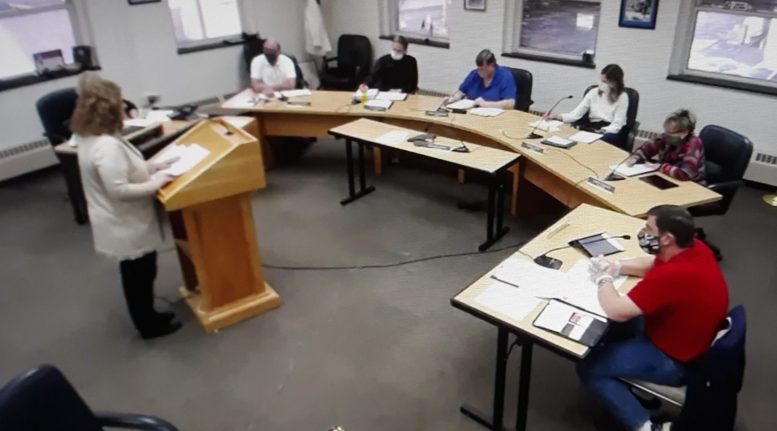By JAN LARSON McLAUGHLIN
BG Independent News
Once the public health threat from COVID-19 has leveled off, Bowling Green officials realize the economic health of the city will still be reeling.
At Monday’s City Council meeting, the masked members discussed how the pandemic may affect the city’s budget and how the city can be creative and cooperative with local businesses in distress.
Mayor Mike Aspacher started by praising the work of city employees, continuing to provide essential services.
“The lights are one. We all have water,” Aspacher said.
Students are still learning, though at a distance from their teachers.
“I continue to be very thankful for all those involved,” he said.
And residents are supporting local businesses, by ordering and picking up food from restaurants staying open. But times are – and will continue to be tough – for many businesses.
“We of course continue to be very concerned with the impact it will have on them,” Aspacher said.
Council member Greg Robinette said the city’s Revolving Loan Fund is being made available to businesses with no interest or payments during the first year on new loans.
“The city is bending over backwards to make funds available,” Robinette said.
Municipal Administrator Lori Tretter talked about the city “navigating turbulent times” ahead.
In an effort to allow businesses to attract customers, the city has expanded the use of temporary signage for businesses. The number of signs allowed will be increased, the need for permits will be waived, the minimum setback will be flexible, and the duration of the signs will be expanded, Tretter said.
Temporary signs will still not be allowed in the right-of-way, they cannot block traffic, and they cannot use flashing lights, she explained.
A-frame signs will be allowed downtown with no fee required. Outdoor merchandise sales and dining will also be permitted with no fee, but will still require a permit, Tretter said.
Any business interested in using additional temporary signs may call the city planning department at 419-354-6218.
Tretter also urged local businesses to work with business organizations like the Chamber of Commerce, Economic Development Foundation, Downtown BG, and Convention and Visitors Bureau.
“I encourage businesses to reach out to these groups,” she said. And in turn, Tretter wants those business groups to contact city leaders with ideas of how city government can help.
Tretter said she is asking city employees to look at operations differently, and said the mayor is doing the same.
“He’s encouraging us to be bold,” she said of Aspacher.
Meanwhile, city officials are also concerned about their own coffers. Unlike the federal government, city and state budgets cannot operate in the red.
Aspacher said the negative impact to the city is inevitable. But he has been in contact with U.S. Sen. Sherrod Brown, U.S. Rep. Bob Latta, and Ohio Gov. Mike DeWine’s office to stress the need for federal and state help for municipalities.
“I think it’s become clear to all of us that the federal and state will have to help out,” the mayor said.
The strain on Bowling Green is magnified by the fact that the city operates its own municipal utilities, Aspacher said.
Robinette said that because Ohio municipalities rely so heavily on income tax, they will be hit especially hard by the pandemic. In Bowling Green, income tax makes up 44% of the general fund and 100% of the police and fire funding.
As residents are furloughed, they will not be paying income tax.
“We’re going to feel the effect of that,” he said.
“The effect will be felt immediately,” Robinette said, but the duration of the impact is unknown.
Robinette told City Council he plans to draft legislation asking for federal and state help for municipal budgets.
“We will get through this and once again thrive as a community,” Aspacher said.
And as the state begins to loosen up its stay-at-home orders, Council President Mark Hollenbaugh urged city residents to not be reckless.
“It’s important everyone adheres to the CDC guidelines,” he said. “To avoid a relapse in recovery from the virus.”

